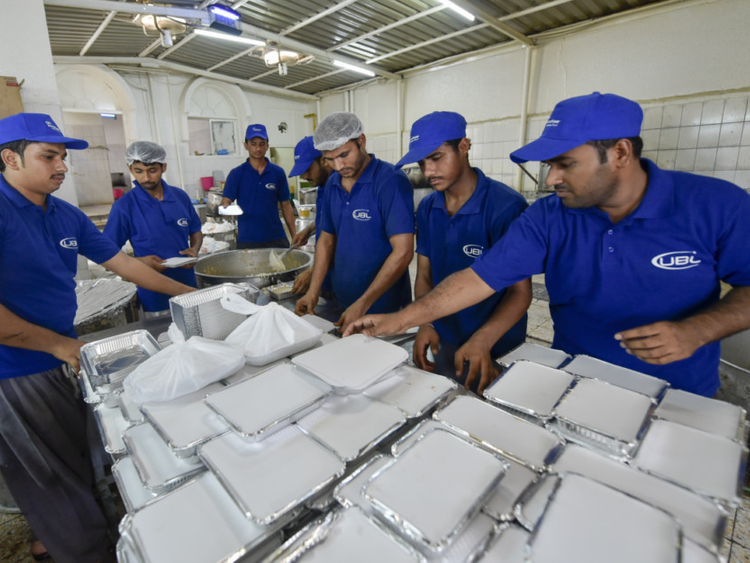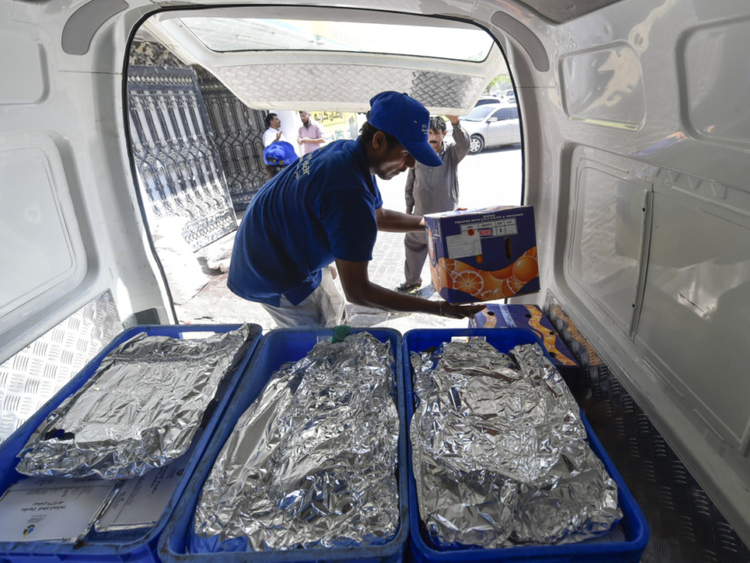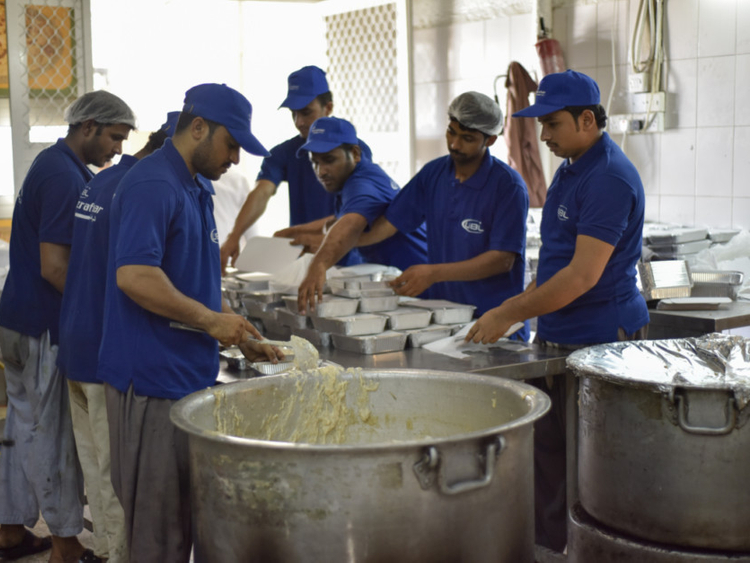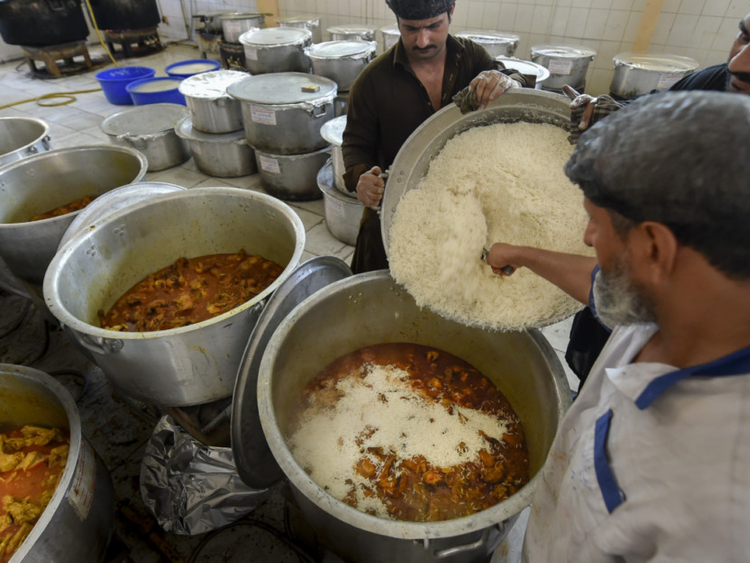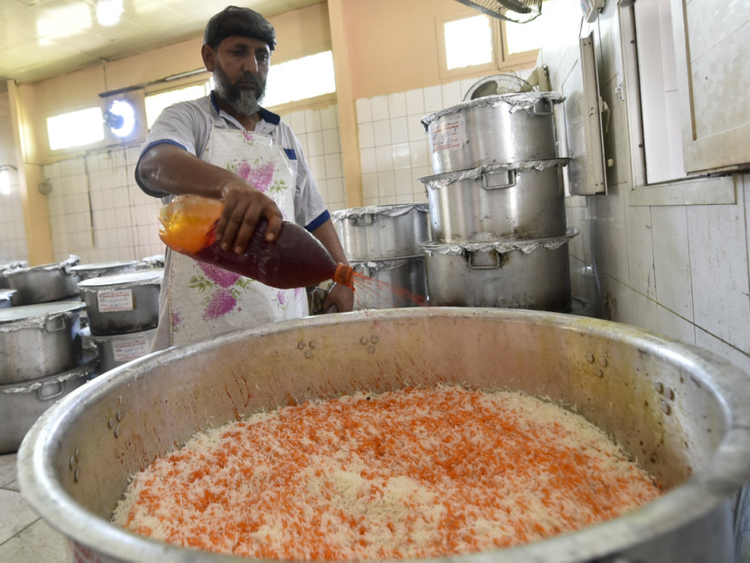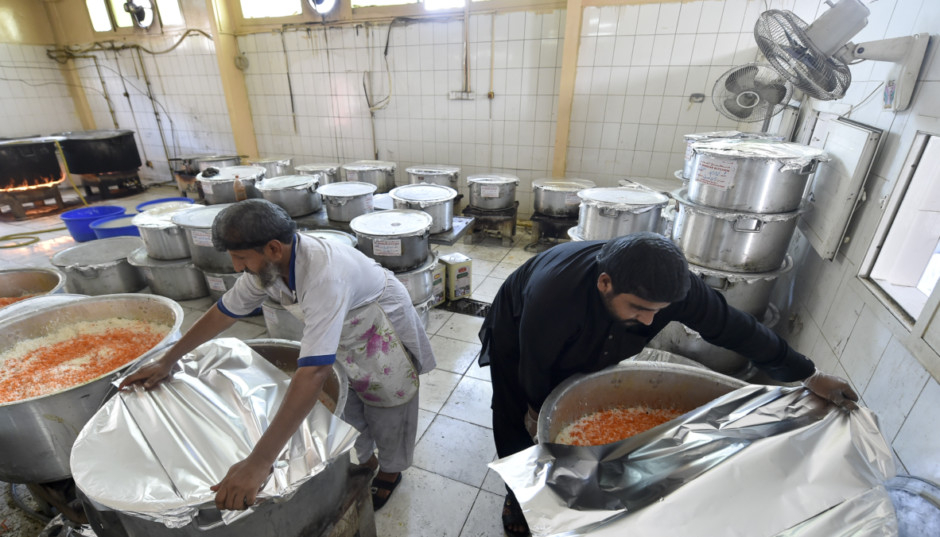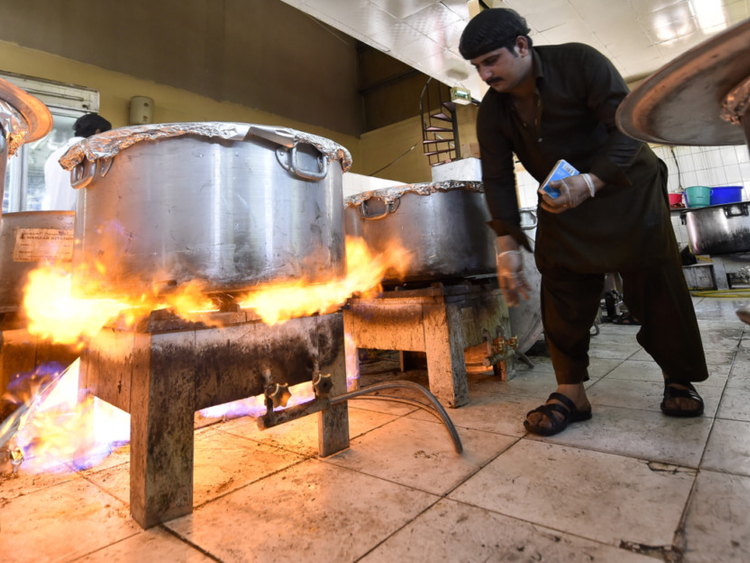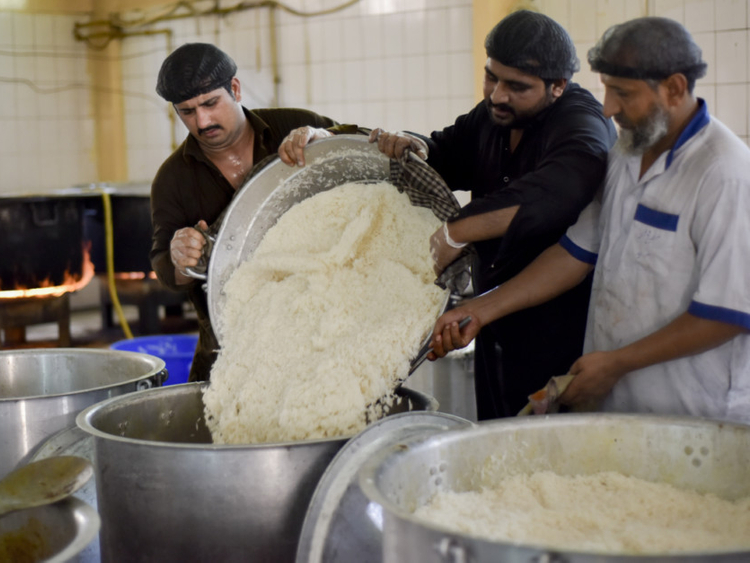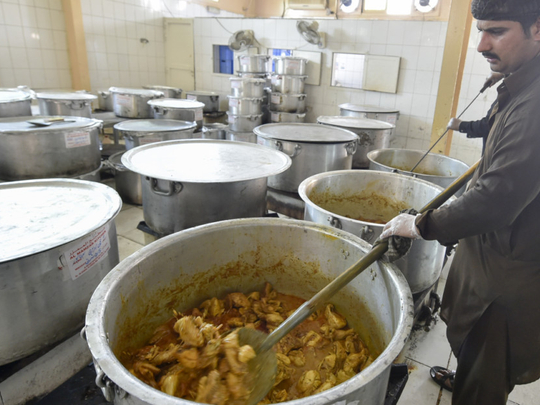
Dubai/Sharjah: It is another blistering summer day in Dubai but Pakistani chef Piran Ditta appears cool and composed as he supervises the preparation of enormous pots for mass iftar meals.
The 45-year-old has been cooking up giant Ramadan feasts for the past 12 years in the UAE. The meals are sponsored by residents and companies, to be served for free at iftar at mosques and labour accommodations.
Every Ramadan, donors, who wish to remain anonymous, spend millions of dirhams to sponsor tonnes of iftar meals in the UAE, as is the tradition in the wider Muslim world as well.
“Yes, it’s hot and I’m fasting, surrounded by tonnes of food that I cannot eat. But the thought that I’m part of this tradition of sponsored iftar meals brings me solace and contentment in what I do. So many hungry fasting people will have a warm, tasty meal at the end of the day,” Ditta, who used to be a schoolteacher in Pakistan, said.
Ditta works at Al Mamzar Kitchen in Al Qusais, one of many “public kitchens” in Dubai. These establishments are not dine-in, but rather prepare a very limited menu of traditional food for pick up or delivery.
During Ramadan, public kitchens go into overdrive as they take bulk orders to be delivered at mosques, where worshippers gather at sunset to end their fast together.
Ditta, who hails from a village near Multan, a city in Pakistan’s Punjab province, said he learnt cooking under a seasoned chef after his teaching career became stagnant. His colleagues call him Ustad Ji, meaning ‘dear teacher’ in Urdu.
“Muslims believe that if they feed a fasting person when he or she ends his fast, they earn the same spiritual reward of fasting of that person. Imagine the rewards of feeding thousands everyday in Ramadan — you can’t comprehend it,” Ditta said.
Despite the cautious business sentiment prevailing these days, a manager at Al Mamzar said orders are actually increasing.
“People who sponsor iftar with us keep on sponsoring meals no matter what. The population is also rising, so we get more orders every year,” Tanwir Ijaz said.
He explained that a “small order” means food for around 20 people, which costs around Dh170 per day. Many donors pay a monthly rate for food delivery to mosques for the entire Ramadan. Orders can be as big as feeding 2,000 people every day.
“The sponsors get nothing in return except spiritual rewards and the good wishes of people. I cannot tell you who the donors are, they are modest about their work and don’t like to be identified,” Ijaz added.
In neighbouring Sharjah, at Al Shan Public Kitchen, manager Mohammad Ashiq Hussain echoed those remarks.
“This whole process in Ramadan is meant for the sake of brotherhood. Our donors are almost exclusively Emiratis who are really keen on ensuring their fellow residents have a decent iftar every day. I commend them highly,” Hussain, from Pakistan, said.
Every day in Ramadan, the multiple branches of Al Shan prepare and deliver food for 30,000 people across the UAE, he added.
“I’ve been here for 10 years and there’s been no decrease in orders. In fact, they keep going up, regardless of the economic situation,” Hussain said.
According to Ijaz, public kitchens during Ramadan prepare the equivalent of six months’ worth of orders, on average. The most popular food is biryani, a meat with rice dish. Bundles of water, dates, juice, milk, and fruits are also packed and delivered.


